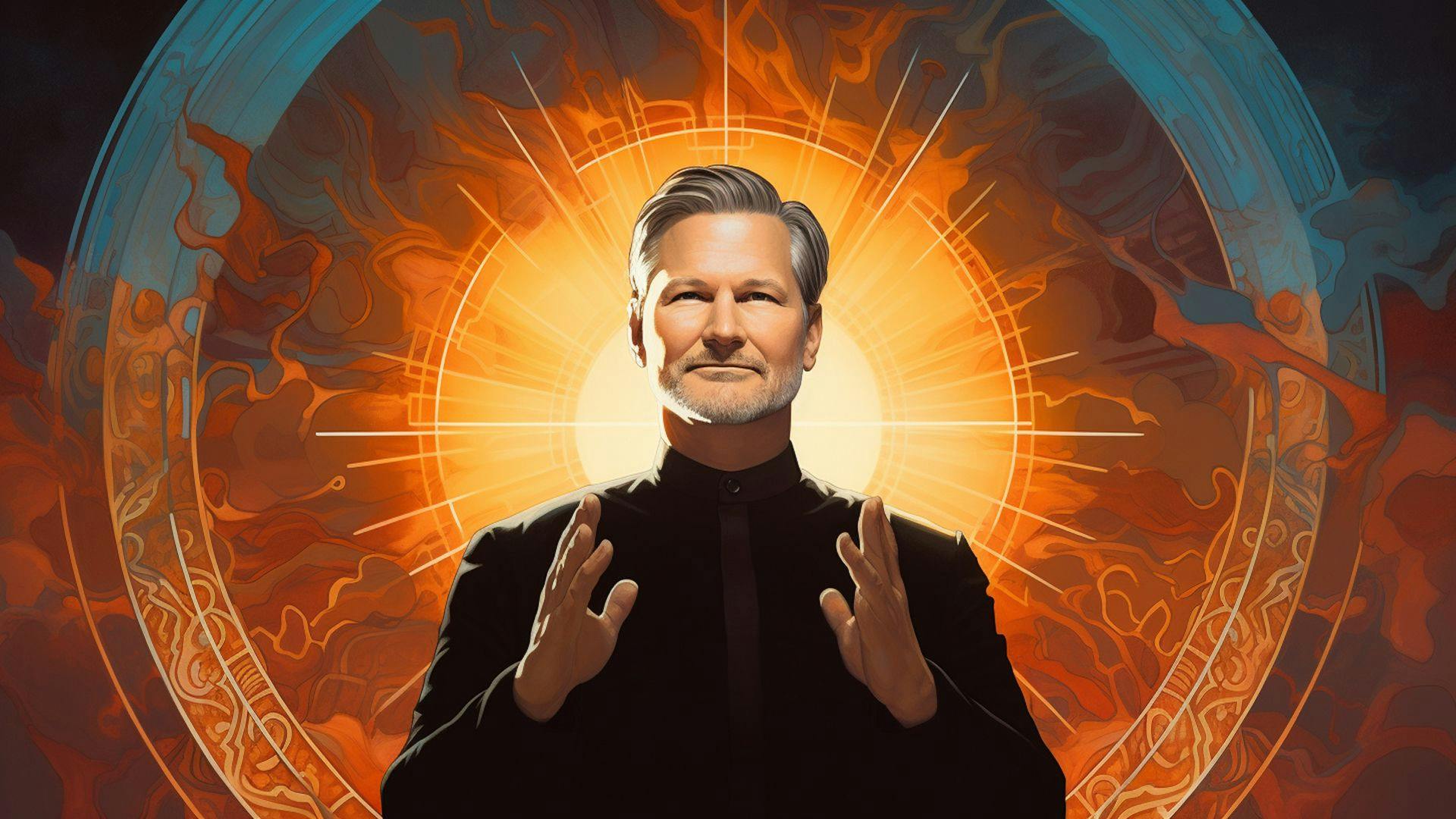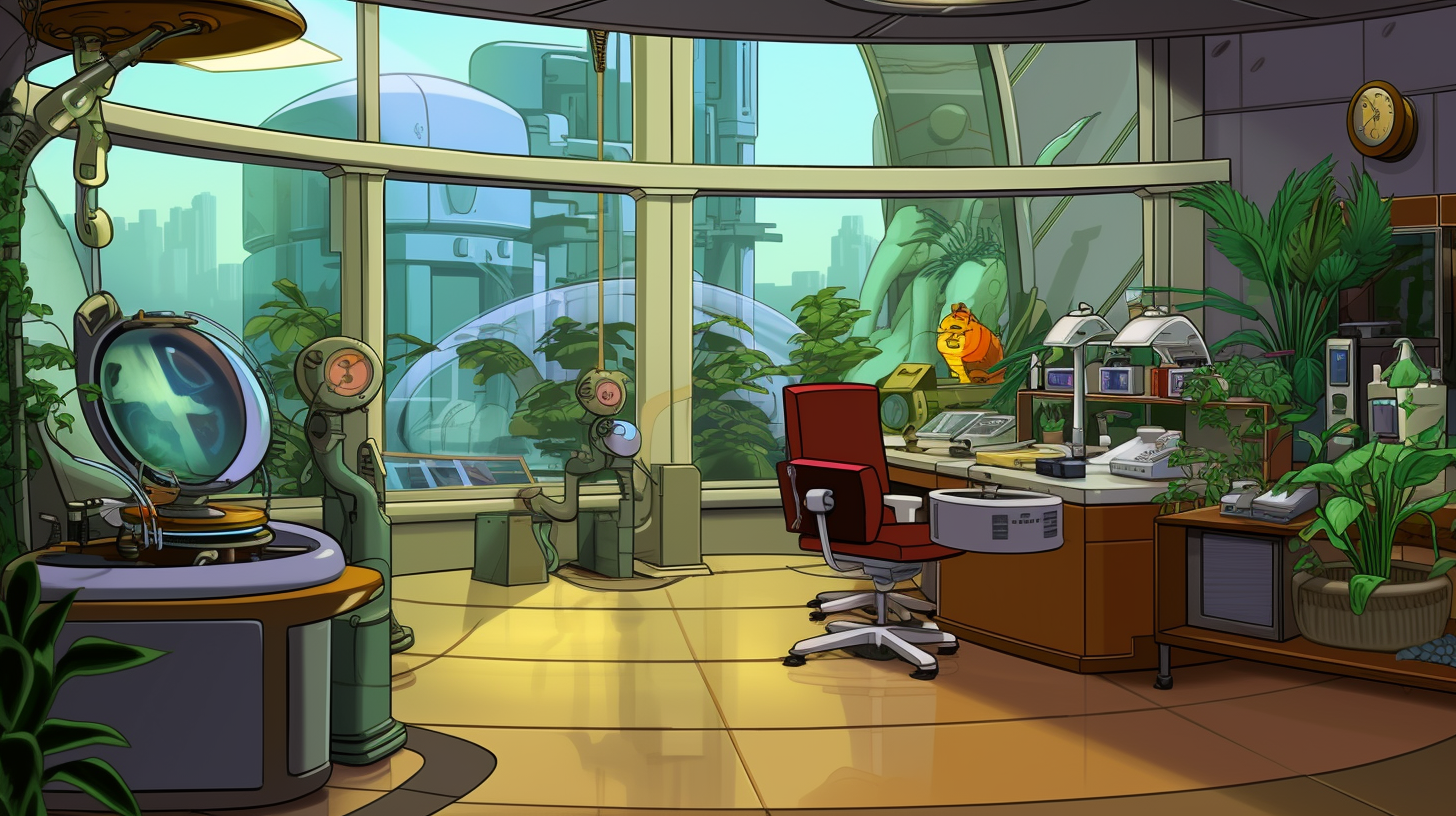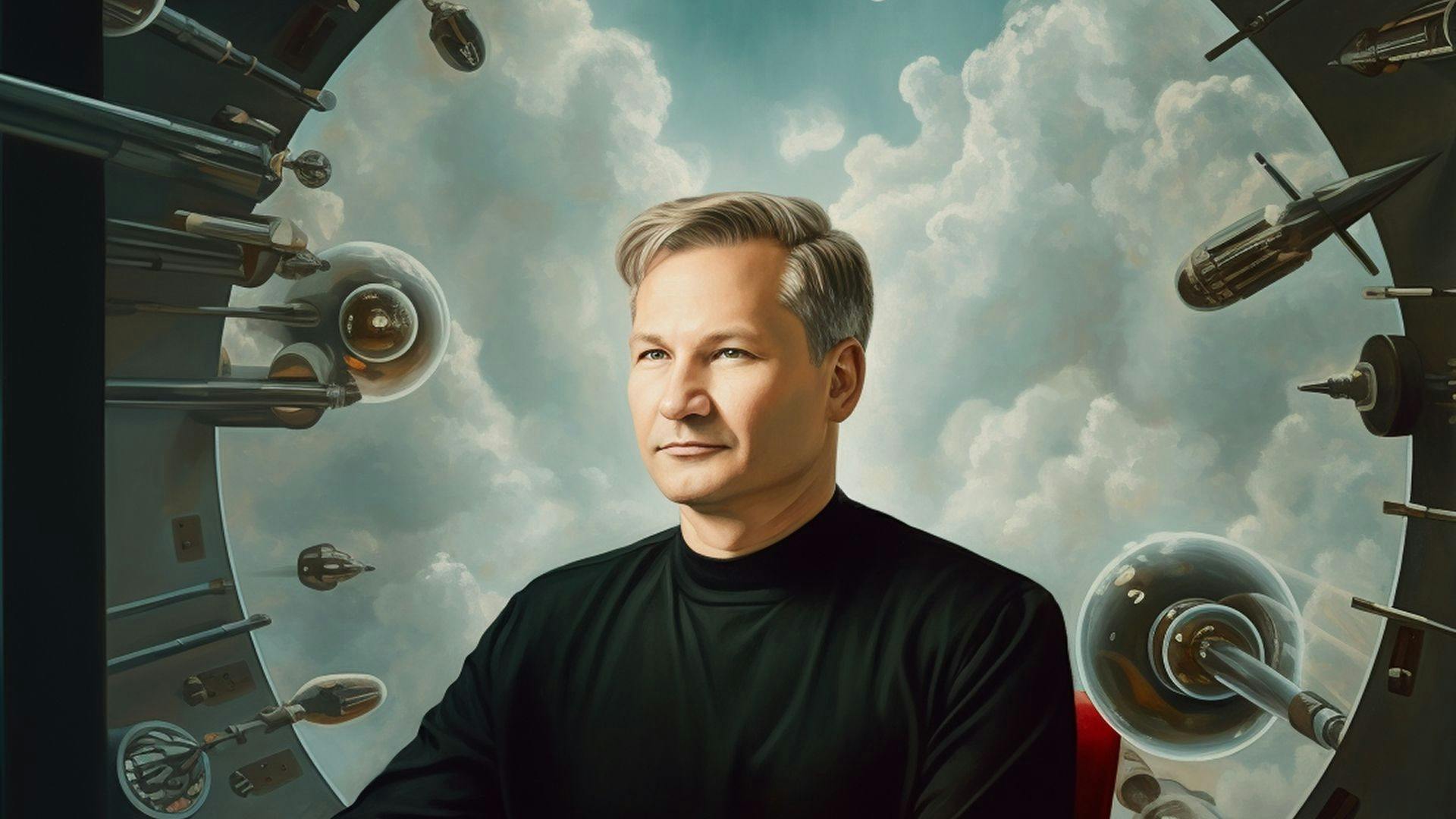
THE FUTURISTS

Robert Tercek is a global authority on the process of dematerialization and digital innovation. He is an award-winning author, entrepreneur, and educator. He is highly sought as a keynote speaker at international conferences.
Tercek is the founder and CEO of General Creativity, a strategic advisory firm specializing in digital transformation and long-term planning. Previously, he served in senior executive leadership at motion picture studios, television networks, and software companies, where he supervised the launch of pioneering digital services that are now used by hundreds of millions of people every day.
In 2021, Mr. Tercek was recognized as the Humanitarian of the Year by the Media Excellence Awards for his leadership in designing and launching COVID SMART™, an interactive training program designed to keep workers safe on the job during the pandemic.
Please complete the form on below and Jay from the Provoke management team will be in touch


I believe that everyone can benefit from cultivating a habit of structured thinking about the future. One way to do that is to ask better questions. Two of the most powerful questions are the simplest: “What if?” And “Why not?”
The first question opens our mind to possibilities, especially if we can temporarily free ourselves from constraints like doubt and pessimism. To begin, let your mind graze unimpeded through the possibilities. The second question, if we answer quite literally and comprehensively, immediately reveal the obstacles that lie in the path of our preferred future. This is a useful exercise because it helps us understand the scope of the challenge ahead. I use the term “preferred future” because there is no one, single future. Multiple futures exist in a range of probable outcomes. When we speak of “the futures” we are referring to a spectrum of weighted probabilities, each with a variety of contingencies and potential consequences.
We have agency. Unliked previous civilizations who were in thrall to the notion that fate is predetermined, today most of us understand that we can influence the future by taking action in the present. When you consider the range of possibilities and weigh the probabilities, you might identify a particular scenario that appeals to you. Then ask yourself what you can do today to increase the odds that this particular scenario will come to fruition. Forecasting is not prediction. We cannot predict the future because it does not exist. All that exists is our knowledge of the past and our experience of the present. Both are limited. Yet they are sufficient for us to construct a range of scenarios with varying degrees of probability.
We possess an immense capacity to envision future possibilities. This innate capacity is so powerful that we sometimes persuade ourselves that our preferred future is indeed a fact or a certainty when it is only a hypothesis. That is delusion. Self-hypnosis occurs when we persuade ourselves about the inevitability of one particular future scenario. That sort of delusion can be very powerful in a constructive way and also in destructive ways. At its best, our convictions about the future will motivate us to take concrete steps to construct the future of our vision. That is positive. Entrepreneurs, artists, educators, community organizers and most leaders do this every day. However, at its worst, delusional self-hypnosis about a particular scenario leads to a messianic fervor reinforced by dogmatic rigidity. This intense delusion can blind us to contingencies and alternatives. This type of negative delusion also creates blind spots about the present, too, and it can make us deaf to advice and heedless of data that contradicts our premise. A kind of confirmation bias. Avoiding this trap is just one good reason why it is necessary to cultivate discipline in the ways we think about the future.
I am personally inspired by the words attributed to computer scientist Alan Kay: “The best way to predict the future is to invent it.” It’s more than a philosophy for me. It’s a business plan. I’ve had the opportunity to invent the future many times in my career: first, by bringing MTV: Music Television to dozens of countries around the world, especially in Southeast Asia, where we were warned that the project would almost certainly fail. We succeeded. It was MTV’s most successful launch in more than 100 nations. Having that experience under my belt in my 20s gave me the confidence to launch bigger projects later. To this day I continue to hear from people who were inspired by MTV in Asia. We brought them new kinds of social narratives, new heroic figures to emulate, a new validation for originality and individuality, and new ways of expressing themselves. I love to hear stories from the people I’ve inspired.
In the early 1990s I was head of worldwide on-air creative at MTV. I encouraged the leadership of the networks to launch a game division for the then-new multimedia PC. The company declined, because at that time most media companies stayed in their lane. The concept of a diversified multimedia conglomerate was not yet a mainstream business strategy. But I had the courage of my convictions. I was possessed by the idea of launching a new venture to create games on personal computers. That’s why I quit my job, which I loved, and moved from New York to California to start one of the first video game companies for PCs. 18 months later, my co-founders and I took that company public on the strength of the success of games that I designed and produced with Monty Python. That event liberated me financially and gave me the freedom to pursue projects that inspire me.
After that, I designed and produced some of the earliest narrative fiction on the web. I joined Sony as the first head of online programming, where I designed and launched 22 multiplayer games. A lot of people in the game industry, particular console game developers, were deeply skeptical. They told me that online games would never succeed. They were wrong. The games I produced, including online versions of Jeopardy! Wheel of Fortune, Trivial Pursuit, the Dating Game, were immediately successful. Today the majority of games are connected, and online games are the norm. What I learned from that experience is that most people who are successful in one field have a tremendous blind spot: they are unable to see how advances in technology will transform their industry. Perhaps that is because they are too vested in the current arrangement, and they do not dare to contemplate a reconfiguration. That blind spot creates an opportunity for an insurgent. The media is surprisingly resistant to change. Major media conglomerates rely heavily on formulaic plots and stories that are easy to explain and big narrative franchises that are weighted down by history and fan expectations. That’s why big media companies are rarely able to adapt nimbly or quickly. Companies like that tend to buy nimble startups at a hefty premium.
In 2000, I decided to enter the new millennium with a new job in a new company that was working on an entirely new technology: streaming video to the mobile phone. At the time, this idea was utterly preposterous. That’s what made it an irresistible challenge for me. I joined PacketVideo as the President of Applications and Services, and my team proceeded to launch video services on mobile networks in more than 30 countries, including Japan, Singapore, Finland, Germany, France, Italy, Spain, the UK and the US. We launched the world’s first commercial video service for mobile devices in 3G networks with NTT DoCoMo in Japan, and then with Sonera in Finland. I love to travel. I’ve had the opportunity to live and work in places all over the world, where I collaborated with local people to design and build new digital services from scratch. Nothing opens your mind to alternative possibilities more than working in another country. New languages and new cultures are an immense gift to the prepared mind. They furnish us with new ways to think. That’s why I am certain that the future, my preferred future, is diverse and contains many divergent experiences, attitudes, and perspectives coexisting in a dynamic balance.
I am always seeking new ways of thinking and new ways to generate ideas. For instance, one way to practice mental discipline and develop mental agility is to shift modalities. I write, draw, paint, play piano, cook, hike, bike, garden, practice yoga and meditate. Often my work requires many hours of concentration in front of a digital screen. This seems unhealthy to me. That’s why I prefer to I shift gears. I move my body, stand, walk or work with my hands and eyes. When I play piano for just 15 minutes, I can shift my mind into an unbounded acoustic space which seems to undo the damage of staring into the glowing rectangle of the computer screen. When I paint, it sometimes takes longer to get into the groove of pure visual / tactile / nonverbal thinking. If I am not feeling the painting groove immediately, then I will sometimes sweep, clean or reorganize my studio until the feeling arrives. Once I settle into the painting mode, then I experience the absence of time and a heightened visual acuity. Visual art trains us to see more sharply, to observe more acutely and to notice things.
Anyone who is interested in developing thinking skills will eventually run into internal resistance. The literal mind, what some folks previously called the left side of the brain, is phenomenally powerful but it does not play fair. It tends to dominate our other mental modalities, particularly non-verbal ways of thinking such as visualization. The left side of the brain is verbal and domineering. It never shuts up. One hack to get around the bossy verbal mind is the sense of smell, one of the primordial pathways directly to the brain. Certain aromas can release long-buried memories and transport us vividly to a clear recollection of another time and place. It’s all there in your brain, but the verbal mind is a chatterbox that tends to obscure that stuff.
I enjoy facilitating brainstorming workshops and collaborative creativity sessions. I do this for organizations and companies all over the world through my consulting firm, General Creativity. We’ve helped big organizations achieve breakthrough results. If you are interested in this line of thinking, please contact me. It is my passion and my purpose. I’d be happy to share it with you.